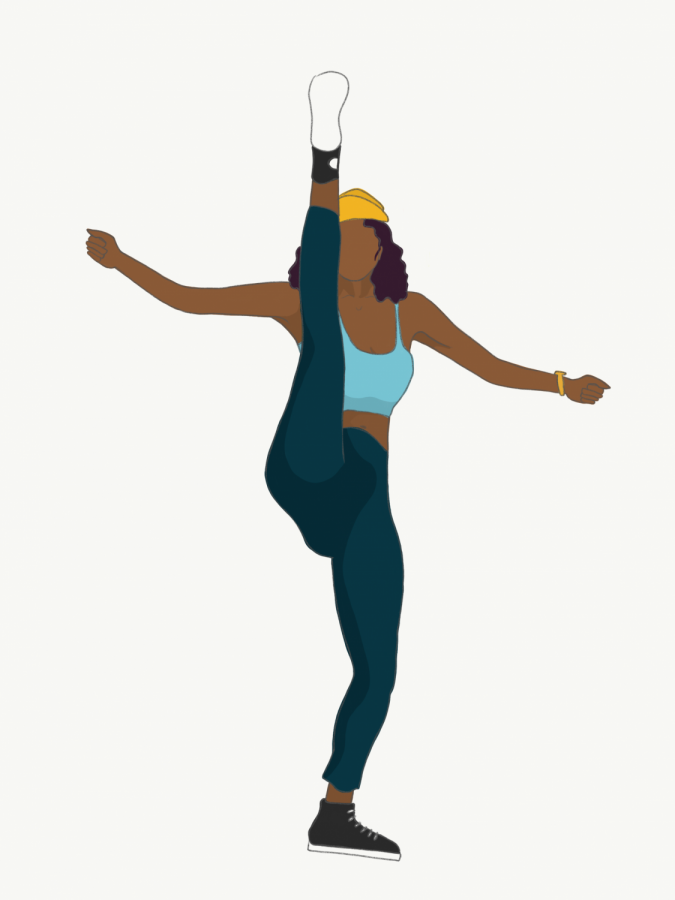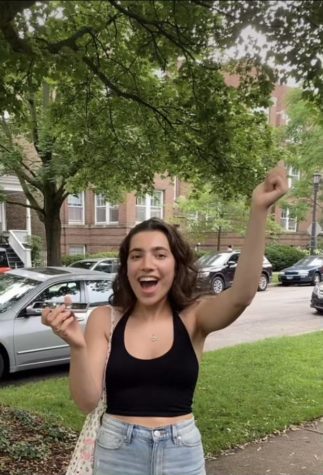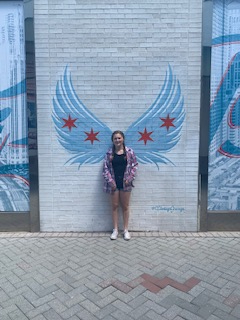Women Are Powerful
Illustrated by Ellie Lind
September 24, 2020
I said certified freak, seven days a week
The first lyrics of Cardi B and Megan Thee Stallion’s new single, “WAP”, left us, like countless others, agape. During the week of Aug. 7, 2020, debuted with 93 million streams and still remains No. 1 on Billboard Hot 100 as of Sep. 26. While it may be the single’s catchy beat that has lead to its popularity, the lyricism of this sensationalized track is the stem of its success. Throughout the 3 minute and 7 second anthem, both rappers graphically describe sexual situations, holding nothing back.
Along with the song’s opulence, there is an abundance of criticism; notably, US House candidate James Bradley made headlines when he tweeted, “Cardi B & Megan Thee Stallion are what happens when children are raised without God and without a strong father figure.” Bradley’s remark resembles comments intended to uphold a double standard that rages across the music industry, throughout history. Cardi B and Meghan Thee Stallion openly describe their womanhood and sexuality, but this autonomy did not come overnight. Female artists, especially musicians of color, have been making subtle yet impactful progress for decades.
The 1960s were a remarkable period within the music industry; the decade was a time female musicians loosened the grip on women’s freedom of expression, typified by the 1963 release of “You Don’t Own Me” by Lesley Gore. In the song, Gore takes control of her body, her choices and her concept of a meaningful life. Following that, in 1967, Aretha Franklin released one of the most influential works for women in music— “Respect.” The song, where Franklin sings, “All I’m askin’ is for a little respect when you get home (just a little bit),” challenged the status quo around race, gender and agency. Moreover, the song stayed on the Billboard Top 100 chart for 12 weeks peaking at No. 1 song on the chart.
Throughout the 1970s, 80s and 90s, hits such as “Cherry Bomb” by The Runaways and “Bad Reputation” by Joan Jett & the Blackhearts chipped away at the notion of delicate
femininity and taboo of women’s sexuality. Following that, “U.N.I.T.Y.” by Queen Latifah and “No Scrubs” by TLC translated worth to listeners, urging women to internalize their value. Both songs described how women deserve better than careless, abusive men.
Historically, white female sexuality has become more widely accepted in the music industry, yet Queen Latifah, who paved the way for women, especially Black women, in hip-hop has spoken about the misogyny she has dealt with as a woman in such a male-dominated industry. Facing a multitude of obstacles including misogynoir, a specialized form of misogyny towards Black women, Queen Latifah has fought for respect from the music industry for generations of future female artists of color. Numerous other artists in through this period such as solo artist Lauryn Hill were able to attest interconnection between femininity and Blackness with chart topping albums such as The Mis-Education of Lauryn Hill and her work in Fugees. Now, Cardi B and Megan Thee Stallion are furthering expression of female sexuality in music even more.
All of these artists, as well as numerous others along the way, have paved the way for the talented female artists of the 21st century to be able to express themselves, as well as their femininity and sexuality. Summer Walker’s “Girls Need Love” calls out the double standard between men and women to discuss sex and desires openly. Janelle Monae rocked the pop genre, candidly articulating her femininity, queerness, and Blackness in her 2018 album Dirty Computer. Ariana Grande’s “God Is a Woman” points out women’s divinity and power. Beyonce, one of the most influential artists of all time, with over 35 million monthly listeners on Spotify, has become an icon for her powerful hand in the industry. Her work, including “***Flawless”, “Blow”, and “Partition” have forever changed the game for women in music. Rhianna and SZA, both of whom also have a plethora of incredible music, are continuing to shape the way female artists talk about their sexuality and relationships. Now, “WAP” takes its place as the latest song to pioneer the new wave of agency to express female pleasure and desire in art.
The extensive shifts in our culture have begun to normalize the celebration of agency in our sexuality. “WAP” allows for two talented, Black female artists to express their own sexuality and celebrate women’s freedom to speak as freely as men would; it should not be overlooked. Just as the work of Aretha Franklin, Queen Latifah and other Black women who have broken the musical glass ceiling, so has this song from Cardi B and Megan Thee Stallion. “WAP” has shocked the world in the best way–and will be a touchstone for future artists to create music that honors female expression, femininity, and sexuality.






















